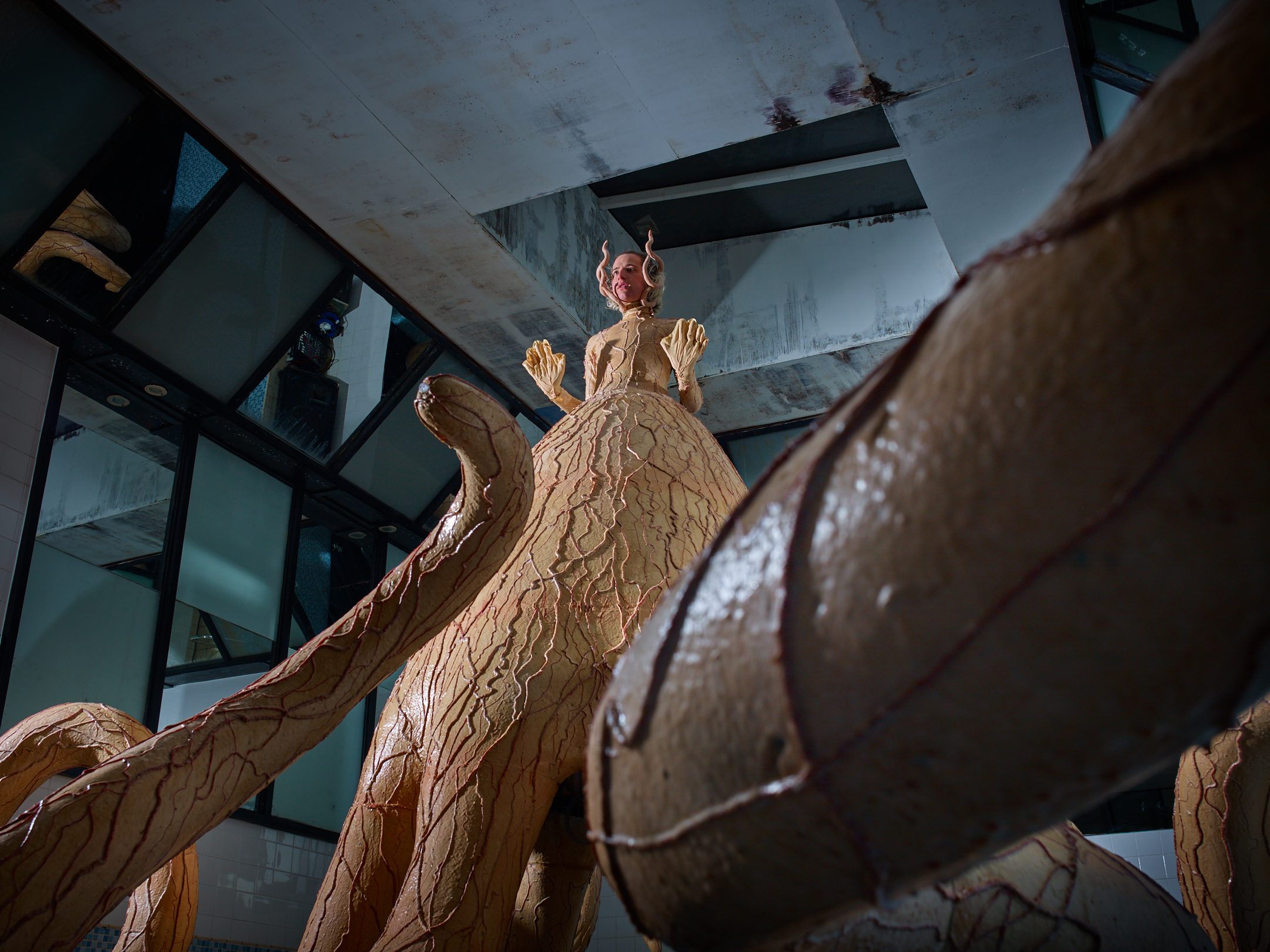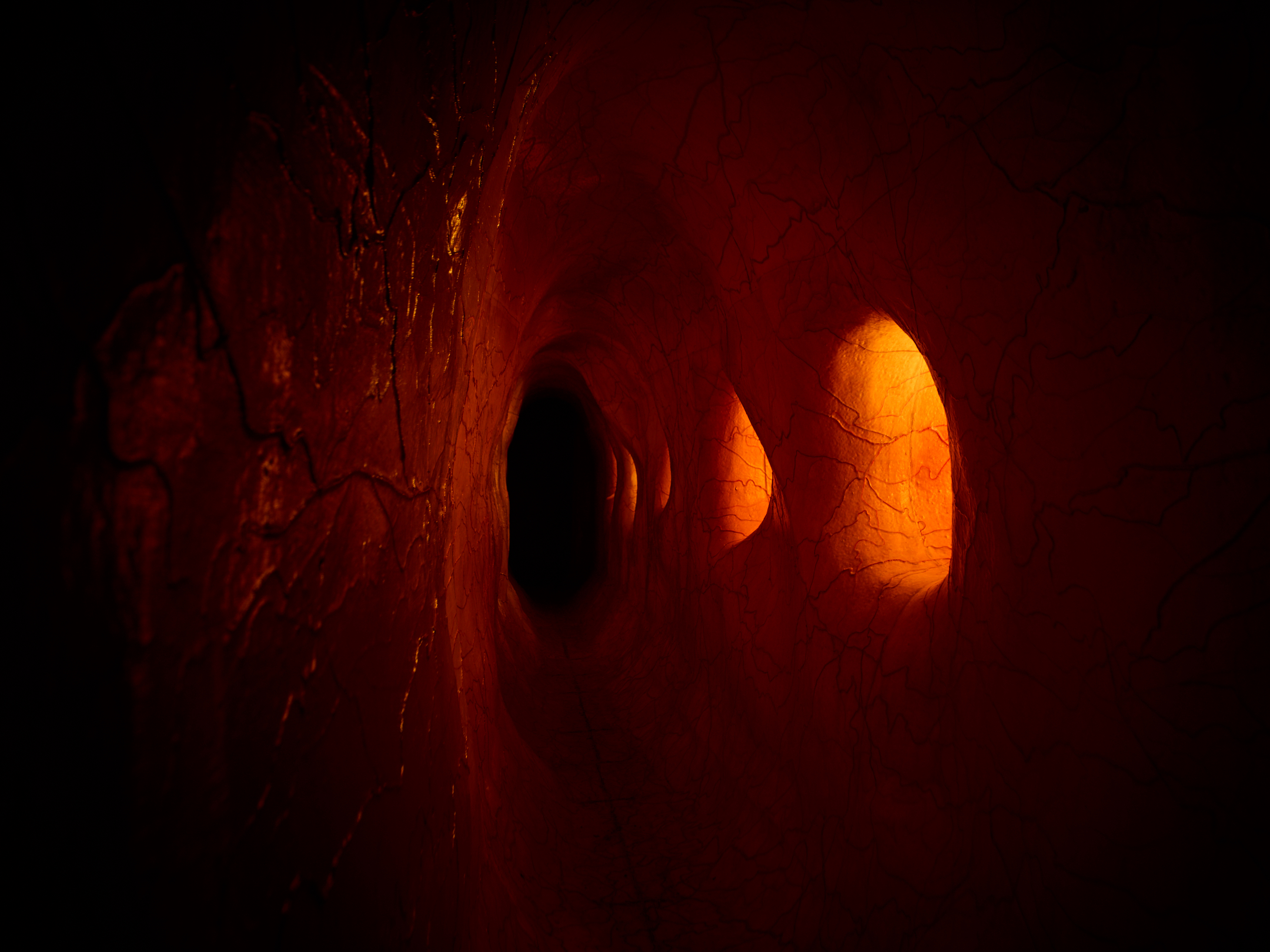Interview
‘Agnes?’
Coeval Magazine
An interview with artist Agnes?, published by Coeval Magazine on 10 May 2021. Installed over two floors of a colossal abandoned leisure centre in North London, TRANSGENESIS is a new site-specific installation by Agnes?
Assuming the form of a submerged and experimental laboratory, the exhibition is a reverse-periscope into the engineering of a posthuman amphibian species — the latest in a series of significant solo exhibitions that place the artist’s body at the centre of a underwater world of transformation and discovery.
Following the embryogenesis of this new species through site-specific sculpture, choreography, performance and sound, the reality underscored in TRANSGENESIS is a model of profound symbiosis. It is ecological and queer, critical of binary oppositions and assertive of the powers of water to precipitate new and adaptive lifeforms attuned to the desperate state of our ecological crisis.
Central to the exhibition is the figure of the octopus—a symbol coextensive with the artist’s body and its tentacular environment. Arguing against the fetishes of blood, earth and origin, TRANSGENESIS is an exhibition that argues for a dissipated, eroticized and flowing interaction between human and habitat, an alien presence that we can neither assimilate nor expel.

Extract —
“Charlie Mills: For the exhibition, you will undertake a significant durational performance: 184 hours over 23 consecutive days. This will be in parallel to the performance program of dancers choreographed by Sadler’s Wells Young Associate, Magnus Westwell. How do you hope each of these elements will bring the show to life in new ways for the audience?
Agnes?: At time of writing, it is the 6th day of performance and I am already exhausted. Being there, performing, is weakening my body the same as the hormones I take every day are poisoning me. I started taking hormones the day I arrived in London to install the show. It was the beginning of my transformation. I needed to share my private life with the public sphere. I decided to open the door of my life and share my process, my transition. To me, the performance does not start when I enter the octopus and finishes when I get out, it is constant. It happens continuously, when I go back home, when I do my routine, eat food and rest my body. It is a ritual, a series of rituals that I repeat which constitute the whole experience as a transformation. This is the basis of evolution, we can’t avoid it. While we go out and perform our normal daily life our body is writing the genes of human evolution. We are writing our history and projecting our future. It's an unconscious process that I nevertheless believe we can control.
CM: TRANSGENESIS celebrates queer futurism, championing principles of collaboration, symbiosis, and transformation through a science fiction lens. Do you ever feel a tension between this future-orientated vision of ecological symbiosis with the more nostalgic aspiration toward a past harmony between humankind and nature?
Agnes?: Gender-bending and gender dysphoria are still a debate. I see it as a recurring process in the future of human beings. Technology has developed to make us able to change our sex, but also grow antennas in our brain, extend limbs and replace our organs. The concept of humanity is lost and into pieces. We must urge to reshape humanity. The future of human beings is the one of mutation and alteration. My dysphoria is not only gender-related but of species too. I wish I could find a hormone that allows me to become an octopus. I dream of an underwater society, fluid and permeated with the sea.”
 ︎︎︎
︎︎︎